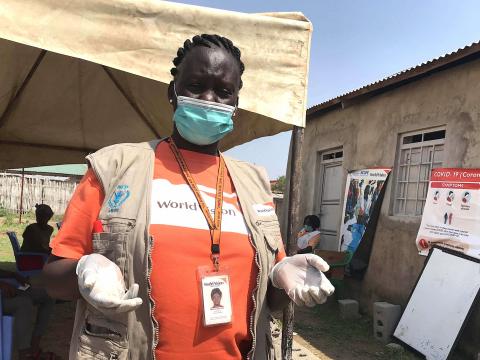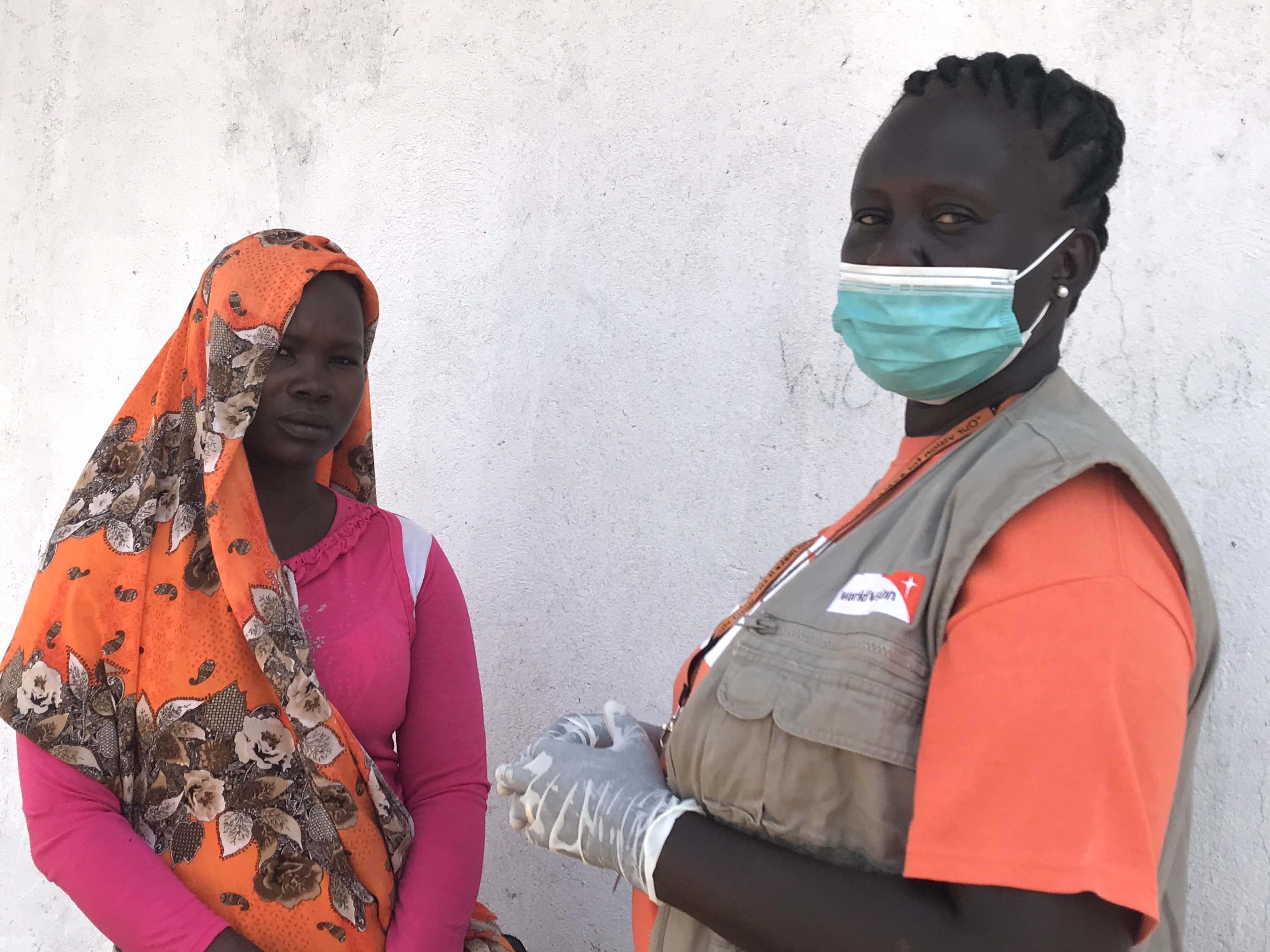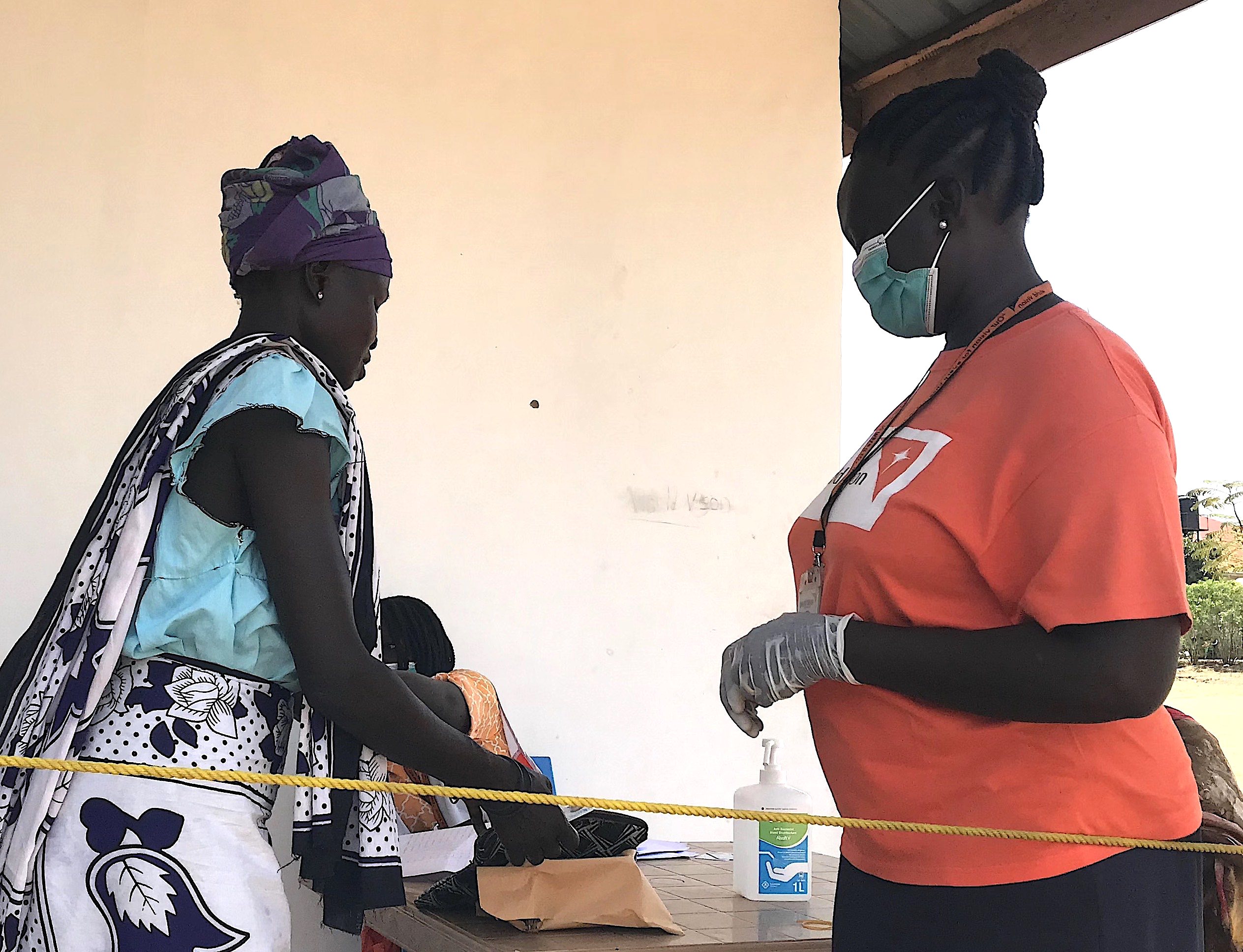Mary’s heart goes out for South Sudanese women losing livelihood due to COVID-19

“It is not easy changing the way we work with the displaced in South Sudan. They were used to crowding and often the lines were long. Putting new controls like social distancing can be tough. My work requires a lot of patience”, says Mary Kiden, World Vision’s field officer for Cash Assistance Program in Juba, South Sudan’s capital.
Mary, a mother of five, explained that working with World Vision for 10 years now has taught her to be patient but with the restrictions needed to prevent spreading coronavirus in the distribution areas, she has to double her efforts. At the activity, people would often forget the instructions and have to be reminded all the time.
“My own community is fearful of this pandemic. We know the risks and we are worried for our children. Now that they are at home because the schools were closed, I have to hire a teacher to come and teach them. If not, they can go out and play with other children when I am at work. It can be dangerous for them”, she shares.
Mary’s family went to nearby Uganda as refugees in 1964 when conflict worsened in South Sudan. “I was born in a refugee camp in 1974. We moved to Kenya exploring better opportunities and decided to go back to Juba in 1978 where I studied my elementary school”, Mary shares.
She further adds, “But we fled again in 1992 to Khartoum, in Sudan where I finished secondary school and completed my university studies graduating with a degree in Food and Nutrition in 1999. We were back in South Sudan in 2002, initially setting in Malakal before going to Juba.”

South Sudan’s government has closed down schools and universities last 20 March 2020 to help prevent the spread of COVID-19 in the country and protect the children from the pandemic, affecting an estimated 1.9 million children. Mary says, “It is good for children to stay at home where they can be safe and watched by their families.”
My work has become very risky nowadays. It even puts my family at risk, too. But I have to do it so I can help educate my fellow women what to do to stop the virus from spreading in their families and communities, and for them to receive the cash assistance so they can provide for their children’s needs.
But Mary’s biggest worry is for her fellow mothers who are also breadwinners of their families. “Many of the South Sudanese women earn extra income for their children by selling products in the market. If this is completely stopped, their children’s food and needs will be affected”, she says with sadness.
“My work has become very risky nowadays. It even puts my family at risk, too. But I have to do it so I can help educate my fellow women what to do to stop the virus from spreading in their families and communities, and for them to receive the cash assistance so they can provide for their children’s needs”, she adds.

According to a UN report, out of South Sudan’s 6.7 million population in 2020 in need of food and livelihood support, 50 percent of these will be women. This report earlier released could have been superseded by the growing impact of COVID-19 in South Sudan’s struggling communities. “I come to work knowing I am helping women with what they need and it gives me courage”, says Mary.
During the awareness activity before people receive the cash assistance, Mary is part of the team that shares information about COVID-19 and the prevention measures that the people need to strictly observe to avoid getting infected. “It takes time for people to fully grasp the danger of the coronavirus but we need to be patient in helping them understand”, she further adds.
World Vision has integrated the COVID-19 education and awareness campaign in all its operational zones in Juba, Warrap, Western Equatoria and Upper Nile, reaching out to over 800,000 people.
Related story: How does COVID-19 impact women farmers?
Story and photos by Cecil Laguardia, Communications Manager